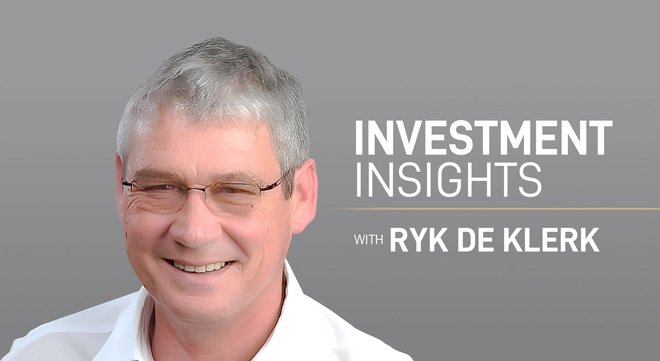The decision by a South African individual, older than 18, to take funds offshore by using the discretionary annual allowance of R1 million or the offshore investment allowance of R10m is not easy and requires careful consideration and discipline.
I have decided to take funds offshore for two main reasons:
1. A hedge against populism
In a discussion paper titled “Populism in South Africa: An analysis”, published by The Brenthurst Foundation in January this year, political economist Phumlani M. Majozi aptly summarised the situation in South Africa: “… populism will continue to rear its ugly head if the challenges of poverty are not addressed with pro-market, pro-growth policies”. He added: “The new Government of National Unity (GNU) will need to address these issues speedily.”
I am becoming apprehensive about South Africa politically and economically because time is running out. The local government elections, set for late 2026 or February 2027 at the latest, are approaching rapidly. There is increasing evidence that the populist-slanted official opposition is growing stronger, and upsets in the GNU and a possible reconfiguration thereof could lead to a coalition leaning towards populism.
There is an increasing threat of land confiscation, and the nationalisation of companies could be the order of the day, which would result in huge capital outflows and effectively impose sanctions on the country. Worst of all, exchange control restrictions could be imposed on non-residents, and South African residents may be barred from investing offshore.
Taking funds offshore is not unpatriotic at all. It is not a South African thing only.
2. It is the best and right thing to do for my descendants
High unemployment, job reservation, and lower educational standards in developing economies lead to parents sending their children to developed countries for their higher education, to enable them to compete for jobs globally. It therefore makes sense that parents invest accordingly to provide for their education in the global sense.
In South Africa, I can start by investing in rand-denominated offshore feeder funds or exchange traded funds, but in the end, I must think of what will happen when my children and grandchildren are at school or university overseas and for some or other reason their education is underfunded because my deceased estate has not been finalised and distributed according to my will, or even worse, what if exchange controls change so that I cannot continue to fund their education? My financial adviser or private banker will have the solutions via offshore products to take care of that, but for that to happen, I might have to increase my external offshore funds.
Herewith a list of questions I ask myself as a starting point:
- Why do I want to take money offshore?
- How tax compliant am I?
- Do I want to emigrate or remain a resident of South Africa?
- Is it a provision to cover future expenses when my family and I are abroad?
- What assets do I want to acquire offshore?
- Where do I want to open a bank account?
- How much money do I want to take offshore?
- When is the appropriate time to move funds offshore?
- What currency will I buy with the rands?
- Can I afford to take money offshore?
- What percentage of my assets do I want to move offshore over time?
- Do I plan to repatriate the income earned on my investments or assets abroad?
- Moving funds abroad could require a separate offshore will to speed up finalisation of my total estate. Will the beneficiaries differ from my local will?
- Should the offshore assets form part of my total assets in determining my overall risk tolerance, required risk, and capacity for risk, or should they reflect the risk profile of the beneficiaries of my offshore will?
- Are my private banker and financial adviser well equipped to assist me through the process?
Yes, taking funds offshore is the best and right thing for me to do. Due to the possible long lead times in getting the structures in place, it is advisable to start sooner rather than later.
Ryk de Klerk is an independent investment analyst.
Disclaimer: The views expressed in this article are those of the writer and are not necessarily shared by Moonstone Information Refinery or its sister companies. The information in this article does not constitute investment or financial planning advice that is appropriate for every individual’s needs and circumstances.




